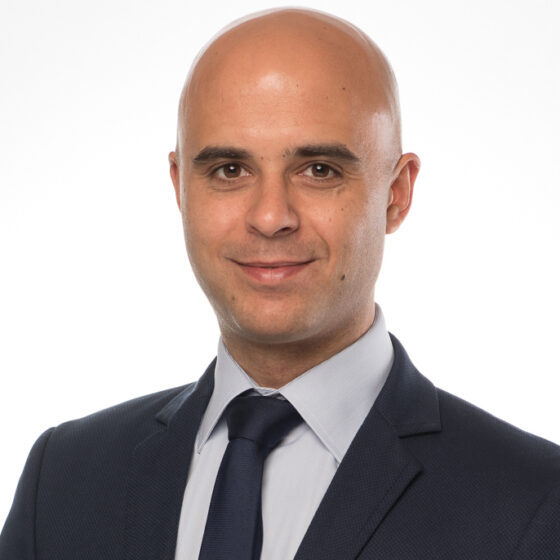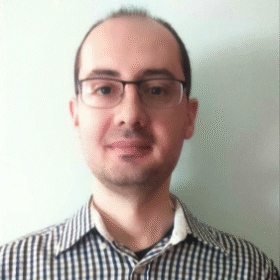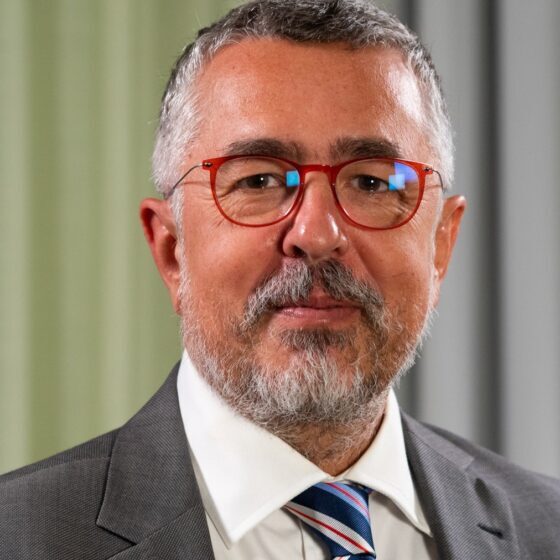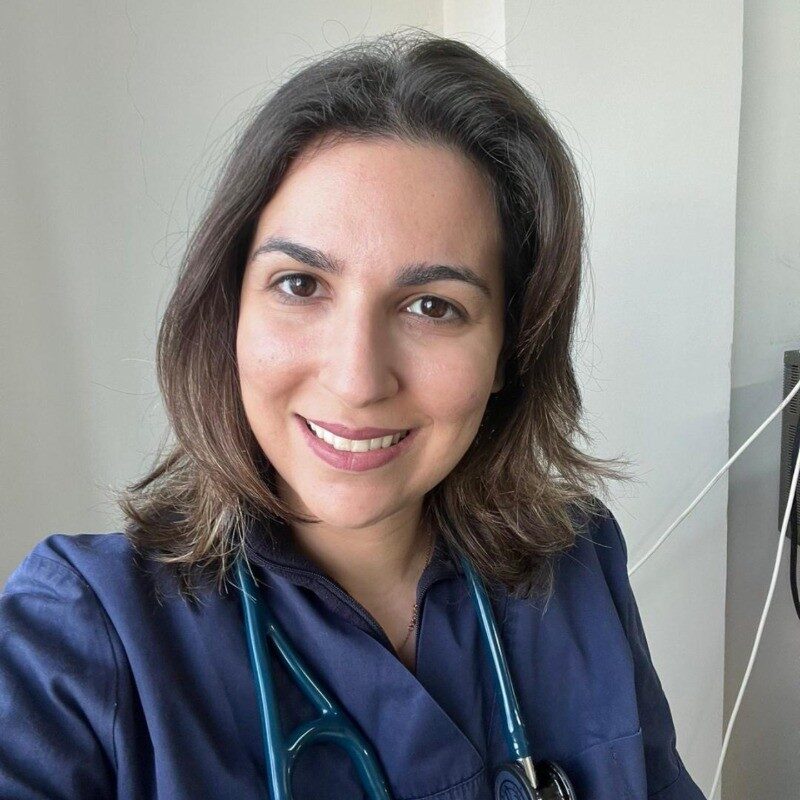
Welcome to Papageorgiou GRADE Center

Project
Papageorgiou GRADE Center is the base for the GRADE working group in Greece, providing training and support to systematic review authors and guideline developers in health, both in Greece and abroad. The GRADE methods (Grading of Recommendations, Assessment, Development, and Evaluations) constitute a systematic and transparent framework for assessing the quality of scientific evidence and formulating recommendations in health guidelines.

Mission
Papageorgiou GRADE Center aims to strengthen evidence-based decision-making in the field of health, based on the most reliable scientific data. Its goal is to support the effective formulation of health policies, the improvement of provided care, and the promotion of equitable and efficient access for citizens to high-quality therapeutic interventions.

About GRADE
The GRADE Working Group started in 2000 as an informal collaboration of scientists aiming to improve existing systems for evaluating research evidence in health. The Working Group developed a methodology that is generally applicable, substantive, and transparent, for assessing the reliability of research evidence and the strength of recommendations. Many international organizations use the GRADE methodology, including the World Health Organization (WHO) and the National Institute for Health and Care Excellence (NICE).
Learn more about assessing the reliability of evidence and the strength of recommendations at https://www.gradeworkinggroup.org/www.gradeworkinggroup.org/
Our center aims to utilize the GRADE method through activities that include:
- The development and implementation of training programs for healthcare professionals, academics, and health policy makers regarding the use of GRADE.
- Providing technical and methodological support and consulting to groups/medical associations, etc., wishing to develop clinical practice guidelines or conduct research syntheses.
- Developing collaborations with academic institutions, scientific societies, international organizations (e.g., World Health Organization), and public organizations (e.g., Ministry of Health, National Organization for Medicines) to promote common standards in evidence assessment and the adoption of evidence-based health policies.
- Participating in research projects aimed at adapting, developing, and evaluating the GRADE methodology in new scientific fields.

Stavros Antoniou

Anna-Bettina Haidits

Alexandros A. Tzanis

Sofia Tsokani

Maria Grammatikopoulou

Maria Bigaki

Dimitrios G. Goulis

Thomas Karagiannis

Adriani Nikolakopoulou

Dimitris Mavridis

Apostolos Tsapas

Fani Apostolidou-Kiouti

Arriana Gkouvi

Konstantinos Perivoliotis

Workshop
Use of the GRADE methodology for summarizing research evidence
The Workshop Use of the GRADE methodology for summarizing research evidence aims at systematic review authors, guideline development groups, and anyone wishing to apply the GRADE methodology in the synthesis and interpretation of research evidence. It is conducted in two half-day training sessions and covers the GRADE methods for interpreting findings and assessing the certainty of evidence, preparing summary of findings tables and evidence profiles, as well as the software that supports the use of GRADE.
Workshop
Use of the GRADE Evidence-to-Decision (EtD) framework for making recommendations and decisions in healthcare
The Workshop Use of the GRADE Evidence-to-Decision (EtD) framework for making recommendations and decisions in healthcare it is intended for those involved in the development of clinical practice or health policy guidelines, as well as for staff of public and private health units and central bodies engaged in organizational policy-making. The seminar introduces participants to the process of moving from research evidence to final recommendations, utilizing the GRADE methodology and the Evidence-to-Decision framework. The workshop is offered as a half-day session for those attending the basic GRADE training program on evidence synthesis but can also be delivered independently, upon request, to new committee members or organizations seeking targeted introductory training.

-
- Contact mac@gradeworkinggroup.org
- Director: Wojtek Wiercioch
-
Lanzhou University GRADE Center, China
- Contact chn@gradeworkinggroup.org
- Director: Yaolong Chen
-
Barcelona GRADE Center, Spain
- Contact bcn@gradeworkinggroup.org
- Director: Pablo Alonso Coello
-
Freiburg GRADE Center, Germany
- Contact de@gradeworkinggroup.org
- Director: Jörg Meerpohl
-
American University of Beirut GRADE Center, Lebanon
- Contact aub@gradeworkinggroup.org
- Director: Elie Akl
-
Lazio Region-ASL Rome GRADE Center, Italy
- Contact roma@gradeworkinggroup.org
- Director: Marina Davoli
-
Adelaide GRADE Centre, Australia
- Contact adelaide@gradeworkinggroup.org
- Director: Zachary Munn
-
Melbourne GRADE Centre, Australia
- Contact melbourne@gradeworkinggroup.org
- Director: Sue Brennan
-
Nottingham Ningbo GRADE Center, China
- Contact nn@gradeworkinggroup.org
- Directors: Richard Hubbard and Jun Xia
-
Krakow GRADE Center, Poland
- Contact pl@gradeworkinggroup.org
- Director: Małgorzata Bała
-
Minds Tokyo GRADE Center, Japan
- Contact mail@gradeworkinggroup.org
- Director: Toshio Fukuoka
-
Bejing GRADE Center, China
- Contact mail@gradeworkinggroup.org
- Director: Yutong Fei and Jianping Liu
-
Fudan University GRADE Center, China
- Contact fudan@gradeworkinggroup.org
- Director: Chongfan Zhang
-
NECA GRADE Center, Korea
- Contact neca@gradeworkinggroup.org
- Director: Miyoung Choi
-
Humanitas University GRADE Centre, Milan, Italy
- Contact milano@gradeworkinggroup.org
- Director: Holger Schunemann
-
ACP GRADE Center, Philadelphia, PA, USA
- Contact acpusa@gradeworkinggroup.org
- Director: Amir Qaseem
-
Papageorgiou GRADE Center, Thessaloniki, Greece
- Contact pgc@gradeworkinggroup.org
- Director: Stavros A. Antoniou
-
- Contact us@gradeworkinggroup.org
- Directors: Philipp Dahm, Yngve Falck-Ytter, Rebecca L. Morgan, M. Hassan Murad, Reem A. Mustafa, Shahnaz Sultan
-
- Contact nl@gradeworkinggroup.org
- Directors: Ton Kuijpers, Miranda Langendam
-
- Contact uk@gradeworkinggroup.org
- Director: Jo Leonardi-Bee
-
- Contact sa@gradeworkinggroup.org
- Directors: Tamara Kredo and Taryn Young
-
- Contact co@gradeworkinggroup.org
- Director: Juan José Yepes-Nuñez
-
- Contact kr@gradeworkinggroup.org
- Directors: Mi Ah Han, Jae Hung Jung, Eu Chang Hwang
-
- Contact nordic@gradeworkinggroup.org
- Directors: Rigmor Berg, Matteo Bruschettini, Helena Domeij, Claire Glenton, Monica Hultcrantz, Karsten Juhl Jørgensen, Simon Lewin, Britta Tendal
-
- Contact cz@gradeworkinggroup.org
- Director: Miloslav Klugar
-
- Contact it@gradeworkinggroup.org
- Directors: Marina Davoli and Holger Schunemann
-
- Contact pt@gradeworkinggroup.org
- Director: Bernardo Sousa Pinto
-
- Contact sc@gradeworkinggroup.org
- Director: Ignacio Neumann